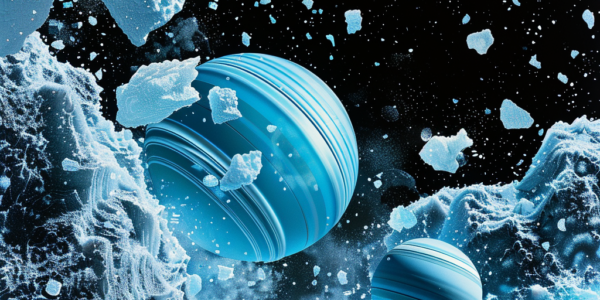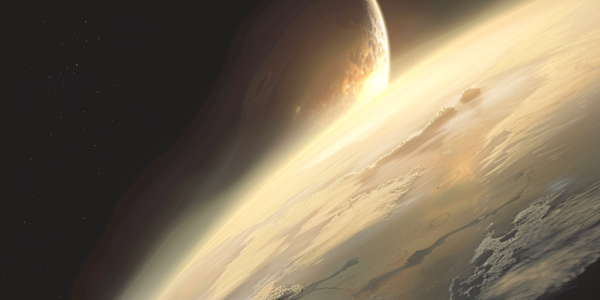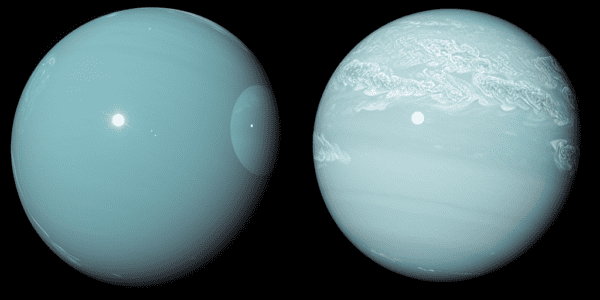Study Suggests Composition of Uranus and Neptune May Not Be as Previously Believed
A recent study suggests that Uranus and Neptune may contain significant amounts of frozen methane, challenging previous beliefs about their composition. The findings could shed light on the formation of these mysterious icy worlds, which have been relatively unexplored since Voyager 2’s visit in the 1980s. The study proposes that the ice giants may have formed from carbon-rich planetesimals, potentially reconciling the discrepancy between their assumed composition and the nature of the objects they accumulated. Further exploration is needed to confirm these findings and unravel the mysteries of these enigmatic ice giants.
New Mini-Neptune Exoplanet Discovered Orbiting Nearby Star
Astronomers have discovered a new mini-Neptune exoplanet, TOI-4438 b, orbiting a nearby star. This planet, about 2.5 times larger than Earth, was found using NASA’s TESS satellite. With a high water mass fraction and a volatile-rich composition, TOI-4438 b is a promising target for atmospheric characterization with the James Webb Space Telescope.
New Research Reveals Similar Duck-Egg Blue Hue of Uranus and Neptune
Recent research conducted by scientists at the University of Oxford has brought to light an intriguing revelation about our solar system. Contrary to popular belief, it appears that the ice giants Uranus and Neptune share a similar duck-egg blue hue,…



